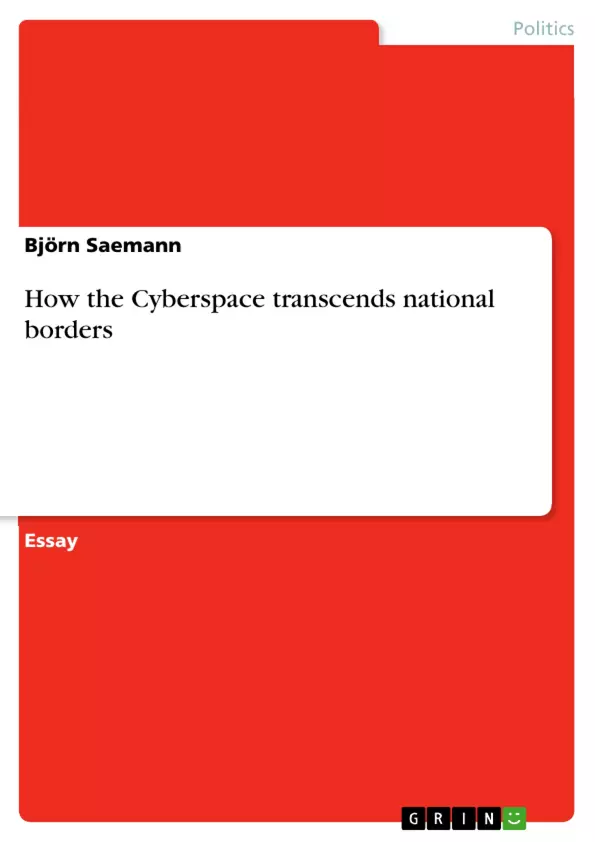For the last two centuries the nation-state was one of the major cultural groups people have been identifying with. Like most of the cultural groups people belong to – like age, race, gender, sexual orientation and many more – the nationality, in other words the belonging to a nation-state – is a more or less fixed group. To change to another national identity is in most cases very difficult to impossible.
In the “Age of the Internet” this changes. A new “nation” arose which was open to everyone with a computer – regardless of their gender, sexual orientation or nationality. A nation in which everybody is truly equal. The Cybernation. This essay is about how the nation-state came to be, why it is such a fixed cultural group and how the Internet transcends the borders of the nation-state. I will use the first intifada (Palestinian uprising in Israel) and the birth of the Cybernation Dehai (Virtual counterpart to the very young African nation Eritrea) as examples to prove my thesis.
Inhaltsverzeichnis (Table of Contents)
- How the Cyberspace transcends national borders
- The Nation State
- The First Intifada
- Eritrea/Dehai
- Virtual Realities
Zielsetzung und Themenschwerpunkte (Objectives and Key Themes)
This essay aims to explore the evolving nature of national identity in the age of the internet. It argues that the internet transcends national borders and creates new forms of national belonging. This is illustrated through the examples of the first Palestinian uprising in Israel and the virtual community Dehai for Eritrean refugees.
- The development and function of the nation-state
- The impact of the internet on national identity
- The first intifada and its use of communication technology
- The virtual community Dehai and its role in national identity
- The potential of virtual reality for future national belonging
Zusammenfassung der Kapitel (Chapter Summaries)
The essay begins by outlining the historical development of the nation-state and its dependence on shared features like language, religion, and heritage. The first intifada in Israel is then presented as an example of how communication technology can bypass national borders and challenge the authority of the nation-state. The essay concludes with a discussion of the virtual community Dehai for Eritrean refugees, highlighting how the internet can create new forms of national belonging that transcend physical borders.
Schlüsselwörter (Keywords)
The essay focuses on the themes of national identity, globalization, cyberspace, the internet, virtual communities, nation-state, and the first intifada.
Frequently Asked Questions
How does the internet transcend national borders?
The internet allows for the creation of "Cybernations" where people can identify with groups regardless of their physical location, gender, or original nationality.
What is the "Cybernation Dehai"?
Dehai is a virtual community that serves as a counterpart to the nation of Eritrea, allowing refugees and the diaspora to maintain a shared national identity online.
What role did communication technology play in the First Intifada?
It allowed Palestinians to bypass traditional state-controlled borders and authority, using technology to organize and share their struggle globally.
Is national identity a fixed concept in the age of the internet?
Traditionally, nationality was a fixed group, but the "Age of the Internet" enables more fluid identities and virtual forms of belonging.
Can virtual realities replace physical nation-states?
The essay explores the potential of virtual realities to create future forms of national belonging that are not tied to physical territory.
- Quote paper
- Björn Saemann (Author), 2009, How the Cyberspace transcends national borders, Munich, GRIN Verlag, https://www.grin.com/document/147893



